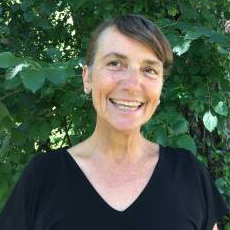2023 city elections
Bike Fort Collins sent all candidates in the 2023 City Election a short questionnaire to allow them to introduce themselves and provide their positions on proximate bicycle and active transportation-related issues. While BFC cannot endorse or support a specific candidate, we are happy to share their responses to foster more informed voting decisions this year.
Patricia Babbitt – MAYORAL RACE
GENERAL
Question: Do you regularly ride a bicycle? If so, what kind of riding do you do?
Answer: Yes, as a person who has never driven, I have depended on my bicycle and public transit to get to work, do errands, and relax outdoors for my entire adult life. During the summer, I easily ride over 100 miles a week; in the winter, I worry about our icy streets and am thankful that our bicycle trails are often cleared of snow and ice when many of our less busy streets and bicycle lanes are not.
Question: Given Fort Collins’s bicycle friendliness, what City bike amenity (i.e. what bike trail, or bikeway, maintenance stations, etc.), element of bicycle infrastructure, or bicycle program is your favorite, or (if you ride) that you use most regularly?
Answer: The Poudre River Trail is my favorite trail, as I love spending time in riparian environments. I can also get to many places I need to go by cycling on the Poudre Trail; when I just want to relax, I love riding to Watson Lake and up Rist Canyon.
As for elements of bicycle infrastructure, I love that we have spaces for bicycles on our city buses, including the FLEX, which I frequently use to make my way Boulder, then on to the Denver Metro area. I also appreciate the Fort Collins Bicycle Co-Op with its emphasis on recycling bicycle parts and teaching how to repair and maintain bikes, and CSU’s Spoke, which also helps so many students and community members to learn how to repair and maintain our bikes.
ACTIVE MODES PLAN
The City’s most current Active Modes Plan combines and updates the City’s 2011 Pedestrian Plan and 2014 Bicycle Plan as well as incorporating micromobility devices such as scooters and skateboards.
Question: What should be the City’s role in supporting (including funding) active modes of transportation as a safe, affordable, efficient and convenient travel option for people of all ethnicities, ages and abilities?
Answer: I do feel that the City should be funding or at least helping to fund active modes of transportation that are affordable, efficient, and convenient travel options for people of all ages, abilities, and socio-economic groups. I think the Active Modes Plan is a great start, but I know a lot of seniors and people with physical disabilities who can’t use scooters, skateboards or other micro-mobility devices to safely get to the places they would like to get to—including getting to our city buses. I have discussed some creative solutions with members of these different communities to address this issue, and I intend to build on these conversations after the election.
Question: What role do you see active transportation playing in City’ ability to achieve its goal and reduce carbon emissions by 80% by 2030 (vs. 2005 levels), on its way to carbon neutrality by 2050?
Answer: If we can create a reliable, efficient, far-reaching transit system, designed to easily carry more bicycles and micro-mobility devices, as well as wheelchairs, I can see this going a long way in helping reach our carbon emission goals—and in changing the current perception still held by so many that we need cars to get to the places we need or want to spend our time. Having lived and worked internationally for many years, I know this is possible, even for cities of our current size and density.
Countless people with whom I have spoken—especially those ages 30 and under or 65 and over–say that we need to prioritize and incentivize our public transportation options so we can decrease our private vehicle use, thereby making our streets safer for pedestrians, cyclists, scooters, and wheelchair users and eventually resulting in carbon neutrality.
BICYCLE INFRASTRUCTURE
Significant areas of our local community have gaps or intersections and areas that need improvement as it relates to safe bicycling and walking infrastructure. In addition to being a safety hazard, they discourage residents from these activities, as a recently completed Multi-modal Index also highlights. Bike Fort Collins has begun to feature some of these ‘opportunities’ on our website as Intersection/Facility Focuses, as well as made presentations to the city’s Bicycle Advisory Committee and Transportation Board.
Question: How would you approach these opportunities and other infrastructure gaps relative to bicycle safety?
Answer: I know that some intersections have been redesigned, repainted, and given flashing lights to help make navigating the streets easier for almost everybody—which is great, except for those who suffer from seizures when encountering flashing lights. I hope that these flashing lights can be replaced by non-flashing warning lights to tell the motorists to stop and allow the non-motorists to cross streets more safely.
FORT COLLINS BIKE PARK
Bike Fort Collins is a partner in an initiative started by our peer organization, Overland Mountain Bike Association, to bring a Bike Park to the City of Fort Collins. While Fort Collins is the progressive and bicycle friendly city that it is, many residents have to travel to places like Boulder (see Valmont Bike Park) to access such an amenity. In surveying the community for input during the 2020 Parks & Rec 10-Year Master Planning process, if ‘Mountain Bike Courses’ hadn’t been listed separately from ‘Bike Park’ (as they are contained within Bike Parks), the combined category would have been among the top-four identified/desired amenities by the community. See survey results.
Question: Do you support the planning and construction of a Bike Park for the Fort Collins community? Why or why not?
Answer: I think we need to carefully consider how our residents and wildlife will be impacted if a Bike Park is built, and we also need to be very careful as to how we will go about planning for, building, and providing transportation options to and from a Bike Park for the Fort Collins community.
I am greatly disturbed by current conversations about possibly using 80 acres of our Hughes Open Space for this purpose, as such a Bike Park would have a huge negative impact on the lives of the animals who live and migrate on this land, as well as for many people currently living in the area. Moreover, almost 70% of our voters asked for Hughes to be kept as a low-impact Open Space, which a Bike Park would not be.
That being said, I believe that with careful consideration and planning, we can brainstorm and work together as a community to find an appropriate place for a Bike Park to be created and enjoyed within or near our city limits.
learn more about
SAFE ROUTES
TO SCHOOL
what is
ACTIVE LIVING?
what’s it take to be a
